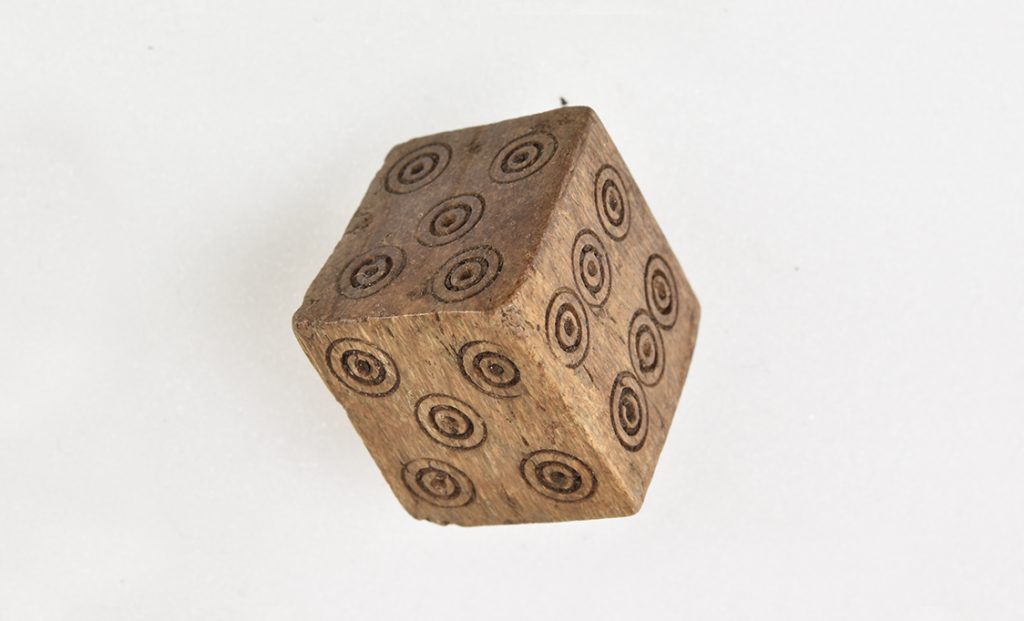Archeologists Unearth Medieval Die That May Have Been Used to Cheat
Posted on: April 15, 2018, 10:00h.
Last updated on: April 14, 2018, 11:45h.
Casinos are always careful to make sure that their dice aren’t loaded, as weighted dice are an easy way to cheat at games like craps.

But the discovery of a very unusual medieval die suggests that unscrupulous gamblers have been trying to cheat with dice for far longer than you may have suspected.
The wooden die, believed to be about 600 years old, was found during an archaeological excavation near a medieval-era street in the Vagsbunnen district of Bergen, Norway. And while that discovery would normally be considered a minor curiosity, this particular cube stood out.
“Over 30 dice from the Middle Ages have been found in Bergen over the years so the discovery of a dice in itself is not very surprising,” wrote a team of archaeologists from the Norwegian Institute for Cultural Heritage Research. “This dice is, on the other hand, special.”
Big Rolls Every Time
What makes this medieval die so different? Even hundreds of years ago, dice were generally created with six sides featuring different numbers of pips, ranging from one through six. This die doesn’t have a one or two, however: it instead has two fours and two fives on its faces.
According to project manager Per Christian Underhaug, the dice were found in a district with a number of inns and pubs, which means there were likely lots of games being played in the area. And Underhaug’s team thinks they have an explanation for the uncommon number layout: it was likely used to cheat at gambling.
According to a blog post by archaeologist Ingrid Rekkavik, gambling was illegal in Norway following a law passed in 1276, but it was still likely a popular pastime (much like sports betting in the United States today). One simple game that was played with dice at the time is Passe-dix, known as Passage in English. In the game, two players role three dice each. The first to roll less than 10 points total loses the game.
Using normal dice, the average roll is 10.5, perilously close to the losing number. But if one die was modified like the one uncovered, that average would get to a more comfortable 11.5.
Was This Die Really Used for Cheating?
So, was the owner of these dice an unabashed cheater? While that was the answer the archeologists came up with, there is reason to think that other explanations should be considered.
A quick look at the medieval die reveals that the “cheating” sides are right next to each other on the die. In other words, if a player rolled a five on the die, it is very easy to see the other die. While that could just be terrible design that would quickly lead to fights, or perhaps mean that the die was meant as a joke more than as a serious cheating device, it could also signal that nothing about this die was meant to be hidden from an opponent.
An alternate possibility is that the die were specific to a certain game that only used those numbers (with the fours and fives being rolled more often than three or six). Some modern board games use dice with non-standard sides, and while it’s not obvious if any medieval games used such dice, there’s no telling what a budding game designer might have come up with around the year 1400.
No comments yet